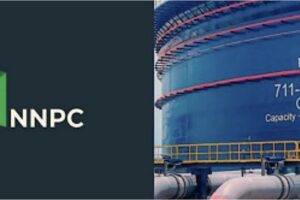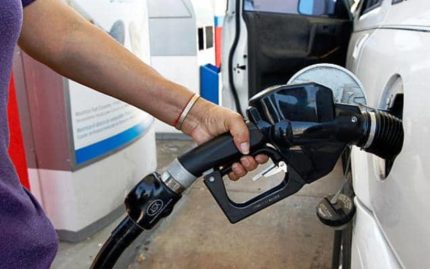In recent developments, the cost of landing Premium Motor Spirit (PMS), commonly known as petrol, in Nigeria has seen a significant decrease. The landing cost, which determines the expense of importing and distributing petrol, has dropped to ₦971 per litre in November 2024, marking a notable reduction of 20.23% from ₦1,219 per litre in August 2024. This reduction is primarily attributed to fluctuations in the Naira-dollar exchange rate and international crude oil prices, creating an expectation of lower prices at the pump. However, consumers have yet to experience relief, as retail prices remain high, sparking debates about pricing fairness.
According to data from the Major Energies Marketers Association of Nigeria, this recent decline in the landing cost is a reflection of easing global oil prices and a slightly favorable exchange rate. Yet, the Nigeria Labour Congress (NLC) expressed concerns, emphasizing that pump prices continue to exceed market values, impacting ordinary Nigerians who rely on petrol for daily transportation and power needs.
Fluctuations in Exchange Rates and Crude Prices Affect Landing Cost
The drop in petrol landing cost is primarily tied to changes in the exchange rate and crude oil prices. As of late last week, the Naira stood at ₦1,678.87 to the dollar, while Brent crude traded at $73.63 per barrel. This differs significantly from August 2024, when Brent crude was priced at $80.72 per barrel, and the Naira-dollar exchange rate was ₦1,611. Experts attribute the decreased landing costs to these economic adjustments, which have contributed to a reduction in fuel import costs.
While the exchange rate and global oil prices continue to affect the cost of petrol importation, local pump prices have not mirrored this trend. Observers are questioning the effectiveness of Nigeria’s pricing policies, especially as deregulation has transferred global price fluctuations directly to Nigerian consumers. The NLC has voiced concerns over the fairness of high pump prices despite the decreasing landing costs, underscoring the need for greater transparency and accountability in the pricing structure.
High Retail Prices Persist Despite Reduced Landing Costs
Despite a marked decrease in landing costs, Nigerians face retail petrol prices ranging from ₦1,060 to ₦1,200 per litre. This surge is significant, considering that petrol was priced at ₦617 per litre in August. The Dangote Refinery, a major local supplier, has also announced ex-depot prices of ₦960 per litre for petrol delivered by ships and ₦990 for those delivered by trucks, further adding to the rising costs at the pump.
The persistent high retail prices raise concerns regarding deregulation and economic challenges within Nigeria. While the lower landing costs should theoretically translate to reduced retail prices, other factors, such as exchange rate fluctuations, inflation, and ongoing supply chain issues, have been cited as contributing factors keeping prices high. This situation has led to growing frustration among Nigerian consumers who struggle to cope with soaring costs in other essential areas of life.
Expert Opinions Call for Transparency and Price Adjustment Of Petrol
Economic experts are calling for adjustments in retail prices to reflect the current decline in landing costs. The NLC has reiterated that the current pricing does not align with international price trends and local economic realities, urging the government to provide relief to consumers. Experts argue that maintaining high pump prices despite reduced landing costs undermines the principles of deregulation, suggesting that the Nigerian government and fuel marketers need to review their pricing frameworks.
As Nigerian households and businesses await further price adjustments, analysts emphasize that deregulation should benefit consumers by allowing competitive forces to influence pricing. With Brent crude oil prices showing signs of stabilization and exchange rates slowly improving, experts predict that a gradual reduction in pump prices could occur. However, whether this will happen in the short term remains uncertain, leaving consumers hoping for relief amid ongoing economic challenges.
Table of Contents
Discover more from OGM News NG
Subscribe to get the latest posts sent to your email.














